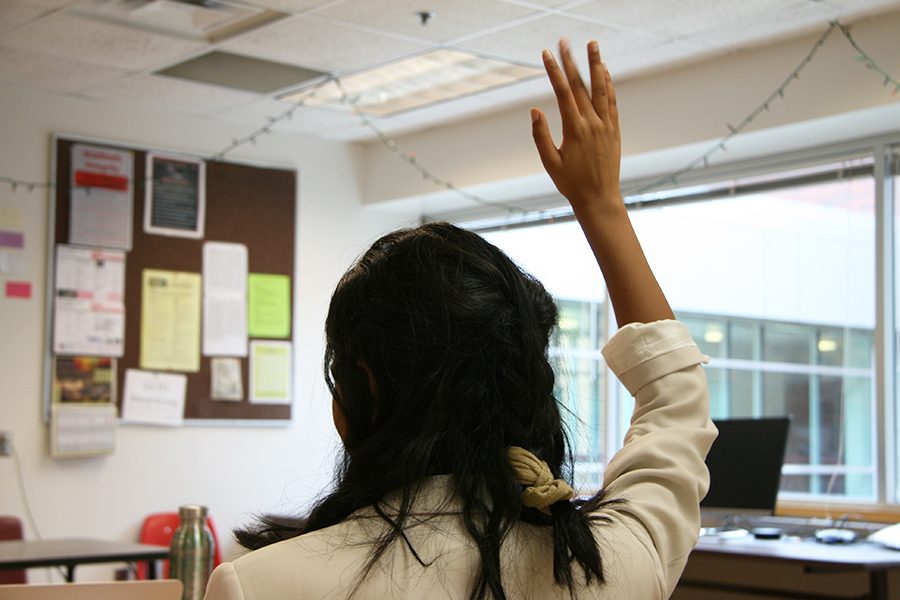Hands up
There’s a general trend among schools for more class discussions. All students are encouraged to be vocal and express their opinions. Although I believe these are good things, this unfortunately has also led to students not raising their hands. According to “The Independent,” one school in Nottinghamshire, England even banned hand-raising last year so that more students would be able to speak in class.
High school students still need to raise hands. As teenagers who are still learning to work and function in a team dynamic, high schoolers can be bad at working in a group. If students do not raise hands, a few students in a class will dominate discussions. Other students who might struggle getting their voice heard but still have valid points to make will not be able to contribute.
In addition, teachers will constantly be interrupted, which may cause the class to get distracted and not complete the necessary classwork. Many high schoolers are not tactful enough to know when a good time to ask a teacher a question, and will interrupt instructions just to say what’s on their mind.
Recently, I was in a class where we spent the whole class period in a discussion. Most students raised their hands and waited for the teacher to call on them to speak. But two students not only did not raise their hands, but repeatedly interrupted the teacher to add their own thoughts or bring up completely unrelated topics. It disrupted the discussion in the classroom and was just plain rude to the teacher.
Students: raise your hands and filter your thoughts. Use your common sense to determine if it is a good time to make a point or ask a question. If you’re for hand raising, raise your hand!
Hands down
From the moment a student enters a classroom or learning environment they are taught to raise their hand. To voice their opinion, to comment on a work, to ask a question, and to even do the basic action of going to the bathroom or getting a drink of water.
For years we are conditioned to raise our hands and keep the mouth sealed. As students transition into later grades, they stop following their teacher in a single-file line and start organize their planners without needing a parent sign-off, yet they are still required to raise their hand.
High school students continue to raise their hands to get acknowledgement, but are then thrown into business meetings and professional settings where raising hands demeans their position. As the grade level gest higher, less and less hands are seen in the air and shorter they appear.
Does it mean we do not know the answer or have an opinion? No. It means we do not want to be called upon and shrink away from the pressure of speaking out. Why? Why does there need to be a pressure to answer a question or actively participate in a discussion?
Sure, it might be a personality trait or a personal preference to listen and then speak. But if we had environment where people were brought up to respect opinions, share their concerns, and learn from others, they would feel comfortable listening to others before speaking.
I am not asking for anarchic debates where screaming and crying is present. I am seeking for a comfortable environment where discussion is present and thought-provoking. Hand raising limits student autonomy.
Students: Put your hands down and start opening up.

